First, I’d like to thank my mom and dad. In all seriousness, they raised me to be frugal, or at least to focus on value rather than flashiness when making purchasing decisions, and to save money whenever I could, whether it was in a piggy bank or a CD. Then I became a freelancer, and I had to be frugal by necessity. I’ve developed habits to make frugality more automatic, and I’ve learned ever more tips and methods to save on expenses or to earn extra income. Some of them I wish I’d learned much sooner.
Every so often, I’d advise a friend who wanted to become a freelancer, or just could use some advice. There’s nothing to help you know what you know like telling someone else about it.
Ultimately, I started writing some blog posts to help people from all walks of life discover options that can help them financially. I had a good friend who didn’t realize credit cards could offer cash-back rewards until I helped him sign up for one at Costco. People miss the chance to clip coupons, buy generic, or take advantage of sales. People have recurring subscriptions to websites they never visit and storage units they haven’t stored anything in for months. My fellow Wisconsinites don’t know they can receive energy-efficient lightbulbs for free through Focus on Energy. People who don’t have MyPoints might not realize they could earn points for shopping at sites they use routinely, or for clicking a few emails each week. People dread the thought of having to negotiate with their phone company and don’t realize services like BillFixers exist.
Anyway, those blog posts–originally intended to be a single quick post listing ideas–grew to be 12,000 words long.
For your ease of reading, I’ve now bundled those blog posts, revised them for clarity and to remove some typos, and made them into an ebook, which you can download for free from this blog post:
Money Management and Living on a Budget for Freelancers by Therese Arkenberg
While I help create Kindle and Smashwords ebooks for a living, this is an ebook of another order. By which I mean, it’s a 27-page PDF. There’s no DRM or anything. I didn’t even make cover art for it. The value is in the content. And if you find that content useful, please feel free to spread this book far and wide. Again, there’s no DRM. Email it to your friends. Post it on your own blog. Can you put PDFs up on Instagram? Do it if you’re so inclined, with my blessing.
Some of the websites I discuss in the book are linked to with affiliate links, so I could earn a few points, or dollars, or discounts, or a gift card if you sign up for programs through them. These referrals add no cost to you, and they have not affected my choice of what to recommend. All the services and websites linked to in this ebook are ones I use myself because I’m satisfied with how they work for me. And ultimately, this ebook is a guide to what works for me: I hope it’ll work for you too, but I can’t promise anything (and I’m not a tax lawyer or financial advisor). Take what sounds good, pass on what doesn’t, and do your own research. I hope it’ll inspire you to be a bit more aggressive in hunting down savings, a bit more encouraged in building up a bank account balance, and a bit less nervous of numbers with dollar signs in front of them.

 Therese Arkenberg's first short story was accepted for publication on January 2, 2008, and her second acceptance came a few hours later. Since then they haven't always been in such a rush, yet her work appears in places like Beneath Ceaseless Skies, Analog, Daily Science Fiction, and the anthology Sword & Sorceress XXIV. Aqua Vitae, her science fiction novella, was released by WolfSinger Publications in December 2011.
She works as a freelance editor and writer in Wisconsin, where she returned after a brief but unforgettable time in Washington, D.C. When she isn't reading, writing, or editing (it's true!) she serves on the board of the Plowshare Center of Waukesha, which works for social, economic, and environmental justice.
Therese Arkenberg's first short story was accepted for publication on January 2, 2008, and her second acceptance came a few hours later. Since then they haven't always been in such a rush, yet her work appears in places like Beneath Ceaseless Skies, Analog, Daily Science Fiction, and the anthology Sword & Sorceress XXIV. Aqua Vitae, her science fiction novella, was released by WolfSinger Publications in December 2011.
She works as a freelance editor and writer in Wisconsin, where she returned after a brief but unforgettable time in Washington, D.C. When she isn't reading, writing, or editing (it's true!) she serves on the board of the Plowshare Center of Waukesha, which works for social, economic, and environmental justice.